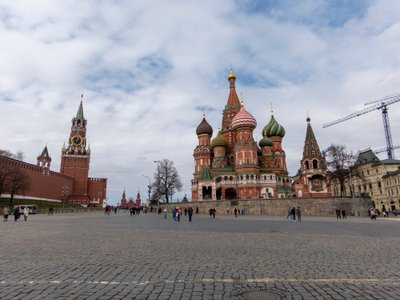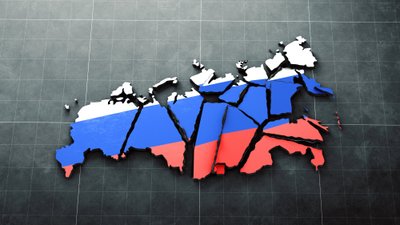However, I realized from the very beginning that the mass exodus of Russians in 2022 was mostly panic-driven – which means that as the course of events in their home country becomes more predictable, and while the strategies for integration into new societies prove not very effective, the migration flow will reverse. This became noticeable just one year after, and is now quite obvious, being recorded in almost all countries that had emerged as main "relocation" (as the Russians themselves describe these days the drive that brings them out of their country) destinations by the end of 2022.
Of course, the newest Russian diaspora in Europe is extremely heterogeneous: the main divides puts aside not so much the poor and the rich, who are in different life situations, but the "political activists", for whom the way back is not an option, and all the others who can freely cross the Russian border in both directions. This difference is fundamental not only for the "relocants", but also for the Russian state, which calls the workforce shortages one of its most important challenges: the Russian economy has no need in activists, bloggers, journalists and artists who oppose Putin’s regime, but would greatly benefit from the return of software engineers, high-skilled workers, or service sector professionals. This is precisely why the Russian authorities haven’t escalate their mobilization efforts that caused many valuable employees to emigrate (as I wrote continuously since 2023, the Kremlin will not announce a new wave of mobilization, preferring to create a mercenary army) while intensify its pressure on activists who possess no economic value. What’s even more importantly, the Kremlin welcomed back those businessmen that previously had transferred significant postions of their fortunes to the West where they were not so much secured than frozen, while in Russia these people were only asked to pay a decent 10 percent tax on "excess profits" earned in 2022 with much of their business remaining in good shape and earning a lot of money.

By various estimates, from 40 to 45 percent of all those who left Russia in 2022 have returned back by the end of 2023. It is clearly visible this trend applies to the greatest extent to those who moved to countries that were considered "convenient" for the Russians being visa-free, cheap and at least in some sense Russian-speaking – from Kazakhstan and Kyrgyzstan to Georgia, Armenia, and even to Turkey and Montenegro. Quite few people intended to stay there permanently, and only a relatively small share of "relocants" were successful enough to move from there to the EU member-states. As a result, in most of post-Soviet countries, the number of the Russians possessing a residence permit has decreased by at least half over the past two years. In Europe, only between 16 and 41 persent of emigrees consider their situation as "stable", which also indicates a possible reverse flow. People are forced to return not so much by hostility of the locals or discrimination from officials, but by purely financial factors: high housing costs, excessive taxes, a shortage of services familiar in Russia, etc.
Psychological factors are also important: if you leave for three to five months hoping to return to the "ruins of the regime", but end up abroad for three years with no prospects for coming back, your hands drop: never before have I seen such a wave of despair in my social media feeds as during the recent Christmas season. Additionally, one needs to keep in mind that most of those who had left, are still in possession of real estate or some other property in Russia that might serve as a source of passive income (unlike migrant workers coming from the "Global South", the Russians do not send remittances to relatives in their homeland, but receive money from it) – and both these assets and the fear of losing them (it was not without a reason that quite recently Vladimir Putin had ordered to identify all the Russians residing permanently outside the country) also drive people back home.

Sadness and disappointment haunts Russians of liberal professions in exile especially hard as they realize their audience is becoming increasingly indifferent and selfish. Few can earn an income that she or he may consider "decent" as the living standards that the new emigrants had previously enjoyed in Russia were comparable to the European ones, while most of those coming to Europe from the "fourth world" originate from desperately poor nations. If one compares the five countries from where new residents to the United States had arrived in 2023 (Mexico, India, the Philippines, the Dominican Republic and Vietnam), she or he would find that their average per capita GDP calculated by market exchange rates will make just 8.6 percent of the U.S. figures (meaning a 11.6 times gap), and one conducts the same analysis for the UK (arrivals from India, Nigeria, China, Pakistan and Zimbabwe), the figure will come to 7.7 percent (a gap of 13 times), and if it would be made for France (newcomers arrivals from Algeria, Morocco, Senegal, Syria, Côte d’Ivoire) the result would decrease to 6.2 percent (a gap of 16.2 times). Therefore, leaving Russia just as an act of protest looks as an expensive and uneasy move unsuitable for those focused on financial issues.
Entrepreneurs who either want to continue their own business, or create a new one from scratch are also returning to Russia in growing numbers. It’s partially due to the Western sanctions immobilizing their assets, and partially due to newly introduced regulation: e.g., Cyprus and Switzerland have terminated providing services for managing family trusts if their founders or beneficiaries are Russian citizens; an important factor is also an inability of passing on assets by inheritance (and it’s worth noting that the average age of Russian ultra-high net worth individuals stands now at 63 years). Well-known Russian opposition activist and former State Duma member Dmitry Gudkov estimates the total amount of capital redomicilated by Russians leaving Europe in 2022-2023 at $50 billion, or about 2/3 of Lithuania’s GDP at market exchange rate. Some entrepreneurs are moving to either the UAE or Turkey, creating a comfortable "leapfrog infrastructure" there, while the others, who recently got rid of all assets in Russia, are changing their minds (for example, Dmitry Korobkov, the founder of the ADV Communications group, after spending a year and a half out of Russia, intended to sue the partners to whom he sold his share in that business for being reinstated as the CEO of the company previously serving many large Western firms that have been active on the Russian market).
To my mind, this case (I will note that Mr. Korobkov has at one time participated in liberal political parties and movements as they were legal in Russia), may prove to be a precedent in at least two respects. On the one hand, this is a unique revision of the previously made decision to exit Russian business (returning oligarchs like Andrey Melnichenko or Mikhail Fridman never dared to do this, just diversifying investments between "here" and "there" [I would remind that by the end of 2024, Moscow had re-entered the top 5 of the global list of cities where the largest number of billionaires reside]). On the other hand, this is the first case when the former co-owner of a business reclaims his rights on the ground he was misled by partners when he sold his stake in the company (this circumstance, if honoured by the court, which is scheduled to take place in early 2025, can be used in the revision of many other similar cases).

The most intriguing point, to my mind, is how much such a reverse wave can accelerate if one or another kind of an armistice of peace treaty between Russia and Ukraine is struck (which is still being discussed with skepticism by many experts, but still has some chances to realize). If this happens, serious changes may occur in the Russian emigration: the range of reasons for granting asylum in Europe will be reduced; funding for NGOs, in which many of "relocants" currently work, may decrease (a striking proof to the new trend is the closure of the Global Engagement Center within the U.S. Department of State, which actively financed projects in the area of supporting free media and countering the spread of Putin’s propaganda); in Russia itself, positive economic changes will clearly follow from even a partial lifting of sanctions (the chance for peace without their revision looks miserable). Moreover, even a temporary truce could signal the return (either real or formal, as some businesses continued their activity during the war years) of numerous Western companies tothe Russian market.
Being quite often in Berlin or Paris (not to say Vienna) I would argue that few business people there are hiding such sentiments. Considering that some of them helped their Russian employees leave the country at the early stage of the war, I think that the reverse movement will affect not only companies, but also people. Last December, the already largely depleted Western business community in Russia was stirred up by Vladimir Putin’s decision to grant a majority stake in the largest Western brewer AB Inbev Efes B.V. "for temporary management" to the little-known (and money-losing) company called "Vmeste"; meanwhile, a just week earlier, the owner of the Russia-based canned food producer "Glavprodukt", the U.S. incorporated Universal Beverage Co. – filed a claim in a Russian court on the illegality of the change of ownership, which occurred as a result of a similar Putin’s decree. It’s also an extremely telling step, since these decrees are the embodiment of hidden nationalization, which can be quite successfully challenged, if not in the Russian, then in international courts. In my opinion, the number of reclaims, based, as in the case of the ADV Group, on misleading the counterparts, and, as in the case of "Glavprodukt", on challenging regulatory acts, will only grow – as the hopes for the settlement of the Ukrainian conflictin 2025 gain ground.
I strongly believe in 2025 one will see intriguing migration trends among the Russian "relocants": a research conducted by "Novaya Gazeta", suggests that for many, the main reason for a return is "unwillingness to put life off for later", and for some, even disillusionment in both the "beautiful Russia of the future" and the emigrant politicians preaching it.
I would argue that sustainability of diasporas is determined by the way how the emigrants correlate their current situation with their meaning of success. If diasporas manage to integrate into the host societies and secure a higher level of prosperity than they had enjoyed at home, they became able to continue for decades (as the Turkish community in Germany does). If diasporas are fueled by a sense of martyrdom (the feeling they were forced to quit due to an intolerable situation in their homelands), and therefore prefer to suffer rather than work; communicate with each other rather than integrate into new societies, the chances for such communities to endure are extremely low. Russian relocates rarely consider their situation as stable, and their departure as a lifetime achievement. This suggests that in the near future the "emigrant separator" will finally divide those who left Russia for economic and for political reasons. The former will sooner or later return back, the latter will just try more hardly to believe their choice was right, until they begin to disappear inside the host societies, as happened to the Russian emigration of the 1920s in Europe, or the Cuban emigration of the 1960s in the U.S. The term "relocation", invented by the "relocants" themselves, will thus determine their fate: unlike emigration, relocation will turn out to be a rather temporary phenomenon...
Vladislav Inozemtsev, Special Advisor to MEMRI’s Russian Media Studies Project, is Founder and Director of Moscow-based Center for Post-Industrial Studies.
